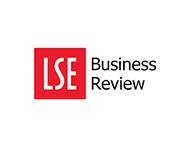Faculty News
—
Professor Robert Seamans offers advice for how the US government should approach tech regulation
—

Excerpt from BuzzFeed -- “'I think there is a lot of appetite for letting the market sort lots of things out,' Robert Seamans, an associate professor at NYU’s Stern School of Business who spent a year as a senior economist at the White House Council of Economic Advisers, told BuzzFeed News. 'We don’t want to pick a China model where the government decides everything that should happen.'”
Faculty News
—

Excerpt from BuzzFeed -- “'I think there is a lot of appetite for letting the market sort lots of things out,' Robert Seamans, an associate professor at NYU’s Stern School of Business who spent a year as a senior economist at the White House Council of Economic Advisers, told BuzzFeed News. 'We don’t want to pick a China model where the government decides everything that should happen.'”





















